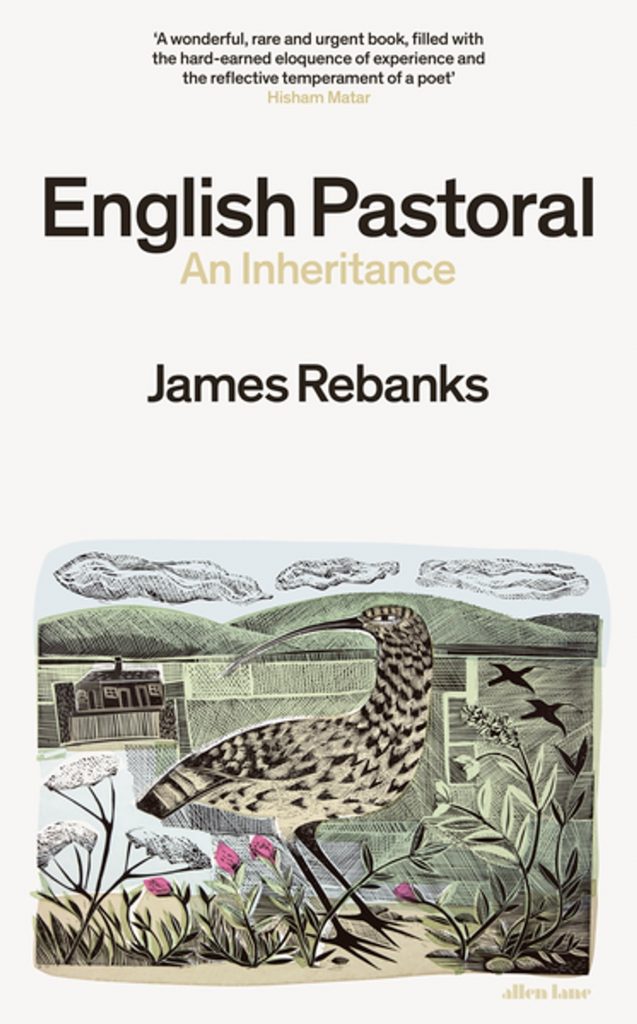author
Jacques Lawinski
post
- 12/02/2023
- No Comments
- Reviews
share
English Pastoral: An Inheritance by James Rebanks
Penguin Random House, 2021.
A personal story of a farmer faced with industrialisation and modernisation in the world of farming, and how he is continuing to farm, determined to do good for the land.

In this widely popular book in the UK, James Rebanks explores what it means to be a farmer, and the changes that have taken place to implement an industrial farming system, supressing traditional methods. He’s open, honest and frank about the emotions regularly experienced by farmers who have gone through this conversion, including regret, sadness, and doubt, but also pride, fulfillment, and a sense of mastery and status.
The book intertwines personal stories on the farm that Rebanks has in England, with information about the ecological impact of farming methods, and the ways in which we have destroyed the environment. He is quick to point the supermarkets out as key players in a systemic problem, noting that the price wars and demands for low-cost food mean that farmers have little choice but to industrialise, and in turn destroy their land. He writes of the plan to modernise and increase the efficiency of farming through new technologies: “There is a big problem with this plan. The new super-industrial farming isn’t sustainable – it is the most destructive farming on earth in both climate and ecological terms.”
The problems that Rebanks points out are multiple and involve everyone, however, and not just the supermarkets. Farmers and consumers are also playing a large role in supporting this system, but this is often due to a lack of information and knowledge about the impact of their decisions: “Most people are now largely illiterate when it comes to agriculture and ecology. This is a cultural disaster, because the global challenge of how we live sustainably on this planet is really a local challenge.”
It’s a local challenge because Rebanks’ utopic vision involves everyone having a close relationship with the food that nourishes them, and therefore the land that grows this food. It’s certainly important, but just how feasible is it, given the mega-cities that we are constructing, with an incredibly high density of people? We might imagine small villages and towns having a closer relationship to their food, but some large-scale structural changes are needed to really confront the problem.
He believes we have listened to economists for too long now, to the detriment of our farms, and our farmers. Industrialising our farming systems meant that “The pigs, chickens or cows in those giant sheds didn’t exist as individuals and had become more like a crop, a mass-produced entity generating a ‘yield’. Perhaps it didn’t matter to most people, but I found it unsettling and alien.”
Relationships with the land and the nourishment that this land provides are key to confronting the ecological crisis. Rebanks’ discussion of converting his farm to regenerative agricultural methods and using traditional mixed and rotational crops and grazing farming has meant more human work is needed on the farm. It’s also meant that he has to go out and earn money in other ways, too, which is a reality for many farmers: keep up or die out. Diversification seems to be working for him, but just how many farmers are willing to take that risk? Hopefully our New Zealand farmers also read Rebanks’ work, and think about their own stories and emotions regarding their land, and how they, and we, might work together to reduce the impact our agricultural systems are having on the land.
English Pastoral is available at Paper Plus NZ here, or check out your local bookshop to see if they have it in stock or can order it for you.
It took more than 30 hours of research and writing to produce this article, which will always be open and free for everyone to read, without any advertising.
All our articles are freely accessible because we believe that everyone needs to be able to access to a source of coherent and easy to understand information on the ecological crisis. This challenge that confronts us all will only be properly addressed when we understand what the problems are and where they come from.
If you've learned something today, please consider donating, to help us produce more great articles and share this knowledge with a wider audience.
Why plurality.eco?
Our environment is more than a resource to be exploited. Human beings are not the ‘masters of nature,’ and cannot think they are managers of everything around them. Plurality is about finding a wealth of ideas to help us cope with the ecological crisis which we have to confront now, and in the coming decades. We all need to understand what is at stake, and create new ways of being in the world, new dreams for ourselves, that recognise this uncertain future.
Copyright © Plurality.eco 2023

